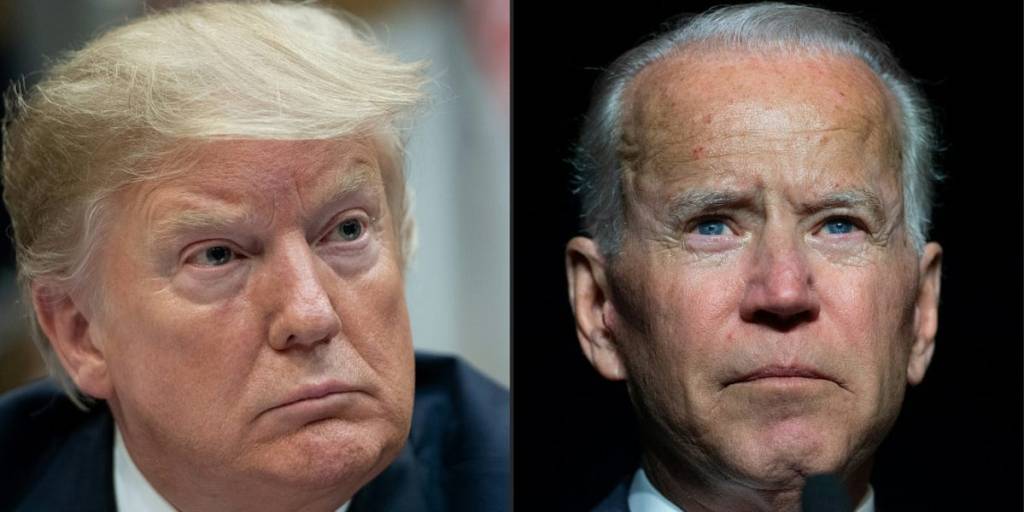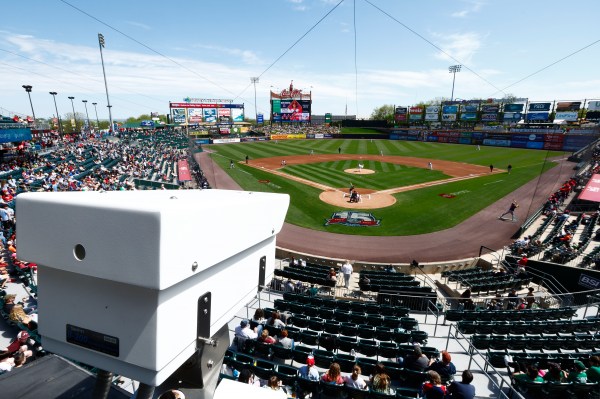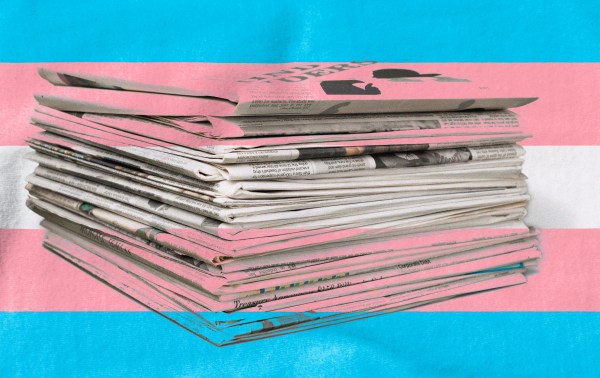It is an old American pastime to worry that the government—or our political opponents—will exploit a crisis for undesirable ends, what James Madison described as “the old trick of turning every contingency into a resource for accumulating force in government.”
Madison’s phrasing is instructive. He wasn’t invoking some grand theory or historical inevitability, merely trickery. Or to put in less pejorative terms, “politics.”
I make this point for the simple reason that there is a tendency on both the left and the right to talk about the threat of socialism or statism or whatever label you prefer as inevitable. The difference between the camps is that one side celebrates it and the other laments it. The mechanism of its inexorable deliverance varies: demographic changes, the force of history, slippery slopes, the ratchet effect, etc.
Whatever the merits of these theories, it’s worth remembering that sometimes things happen not because of destiny but decisions. Leaders and voters alike make choices. Just as there are people who say “a crisis is a terrible thing to waste,” there is nothing stopping an equal and opposite group of people who say “don’t exploit a crisis to get things you otherwise couldn’t.” Winning such arguments is a matter of will, statesmanship, and persuasion. As the late Charles Krauthammer liked to say, “decline is a choice.” Well, so is statism.
With that out of the way, here’s one possible way we could fall into a new New Deal, not as a fulfillment of some dialectical inevitability, but because people made a wrong decision.
A momentous decision.
President Trump repeatedly says that the economic support package(s) he’s overseeing are the biggest in American history. I’ll spare you the numbers—in part because they keep growing—but the outlays already dwarf President Obama’s stimulus.
Given the predicament we are in, I think that’s the right thing to do. I have no doubt that in the years ahead, economists will figure out that we could have done this or that better. But while such after-action second-guessing is important and necessary to plan for some future calamity, it’s also a luxury right now. Getting money out the door as quickly as possible is necessary to keep the economy on life support. If I told you there was a bomb in your house and you had exactly three minutes to pack your most cherished belongings, you probably wouldn’t take the kind of special care in packing you would if you had weeks to plan.
While people can rightly debate whether the president’s response to the pandemic was adequate or “perfect,” it wouldn’t just be unfair to blame him for the pandemic itself, it would be nonsense. But events are already rendering that debate moot. The president is reportedly considering announcing his decision on “re-opening” the economy in the next few days. Putting aside the controversy over whether he has the “total authority” or even the ability to do so, it seems obvious to me that if he makes such an announcement many politicians, businesses, and citizens will follow his lead.
If that happens, and we manage to keep the pandemic from reigniting, you can be sure he will claim credit for getting America working again. And if it’s a success, he would have every right to do so.
But what if it fails? What if significant numbers of people go back to work and to bars and restaurants and schools. Maybe not in every state or community, but in enough that the virus can start spreading once again like wildfire. The economy shuts down again, harder and longer. Then, the president would “own” COVID-19-II and the disastrous economy that came with it.
Again, nothing is foreordained, but one needn’t be a political soothsayer to predict that Donald Trump would lose the election in a landslide.
Donald J. Hoover?
Enter Joe Biden. The differences between Biden and Franklin Roosevelt are many and obvious, but there’s something about Oliver Wendell Holmes’ quip about FDR that falls at least in the vicinity of Biden: “A second–class intellect. But a first–class temperament.” I don’t actually think Biden has a first-class temperament, whatever that actually is, but a country bitter over dealing with death and impoverishment while the president boasts of his ratings and claims perfection amid mass suffering, we might understandably take Biden’s amiable persona as first-class by comparison.
Higgs writes in Crisis and Leviathan:
If the man in the street remembers anything about Herbert Hoover it is that his middle name was Laissez-Faire and he did nothing while the American economy went to rack and ruin. As usual the knowledge of the man in the street leaves something to be desired. The popular remembrance of Hoover’s quiescence in the face of the depression is a myth. The Great Engineer may have had his faults, but fiddling while the economy burned was not one of them. “Do nothing” was never his motto; his middle name was actually Clark.
The Hoover myth is one of the most significant misconceptions in America history, and it was carefully constructed by the Roosevelt administration and its allies. As a candidate and newly elected president, FDR deftly painted Hoover—or allowed others, including Father Charles Coughlin, to paint him—as a cold and indifferent hyper-libertarian (though that word wasn’t in usage back then). Hoover was portrayed as an uncaring Nero and obsessed budget-balancer who let the economy burn for its own good.
This was—and remains—a lie.
1) Hoover’s budget strategy over his term of office was not to balance the budget. The budget ran a small deficit of -.6% of GDP in 1931, followed by a much larger deficits of 4.0% of GDP in 1932 and 4.5% of GDP in fiscal year 1933…
2) Hoover did not cut spending. In nominal terms, federal spending went from $3.3 billion (!) in 1930 to $4.6 billion in 1933. Given price deflation during that time, the real increase in government spending would have been larger. With the economy declining in size, federal outlays more than doubled from 3.4% of GDP in 1930 to 8.0% of GDP in fiscal year 1933.
FDR, who ran for president promising to balance the budget and eliminate Hoover’s deficit spending, by the way, refused to coordinate with Hoover even after the election, but before he was sworn in. He wanted Hoover to have all of the blame for the Depression (which was not yet great). But he was happy to take many of the programs initiated by Hoover and claim them as his own.
Rexford Tugwell, one of the leading Brain Trusters later recalled, “When it was all over, I once made a list of New Deal ventures begun during Hoover’s years as Secretary of Commerce and then as president. … The New Deal owed much to what he had begun.”
In the spring of 1930, the New York Times said of Hoover’s efforts, “No one in his place could have done more” and “very few of his predecessors could have done as much.” And here’s Hoover himself in a campaign speech:
We might have done nothing. That would have been utter ruin. Instead, we met the situations with proposals to private business and the Congress of the most gigantic program of economic defense and counterattack ever evolved in the history of the Republic. These programs, unparalleled in the history of depressions of any country and in any time, to care for distress, to provide employment to aid agriculture, to maintain the financial stability of the country, to safeguard the savings of the people, to protect their homes, are not in the past tense—they are in action. … No government in Washington has hitherto considered that it held so broad a responsibility for leadership in such time.”
A President Biden would be perfectly situated to similarly rewrite history on the fly, and while conservative media might try valiantly to fact check the revisionism, what good would that do if Biden enjoyed considerable majorities in Congress? Additionally, Donald Trump is a far richer target for the sort of demonization Hoover suffered in his post-presidential years. Were it not for his presidency—and FDR’s—Hoover would be remembered as one of the most impressive men of the 20th century (that rehabilitation is somewhat underway). Hoover suffered from a poisonous press in the 1930s, but not from the kind of betrayals and tell-alls that would undoubtedly surface as former supporters and members of Trump’s administration tried to salvage their own careers by distancing themselves from the 45th president.
The next New New Deal.
So what would a President Biden do? Contrary to a lot of the talking points thrown around today, Biden is not Bernie Sanders. But he is a pliable Democrat who has always staked ground as a centrist—not between the left and right of the American political spectrum but between the left and right of the Democratic Party (not at all unlike FDR himself). And the center of gravity of that party has been moving steadily to the left. One needn’t embrace the ideas or, more importantly, the rhetoric of socialism to want a new New Deal. Every generation of Democrats since FDR has wanted a new New Deal, which is why we got the Fair Deal (Truman), the New Frontier (Kennedy), the Great Society (LBJ), the New Covenant (Clinton), and New Foundation (Obama). With the exception of the Great Society, few even approached the ambition of the New Deal, but not for a lack of desire. What they lacked were conditions on the ground to make the kind of “fundamental transformation” Democrats today yearn for.
Indeed, there’s a school of thought in liberalism that says the choice between socialism and a New Deal is a false one. You need only listen to Alexandria Ocasio-Cortez use the two concepts interchangeably to understand that. Arthur Schlesinger long ago argued that “the gradual advance of socialism in the United States” could be achieved “through a series of New Deals.
History doesn’t repeat, but it often rhymes, Mark Twain is said to have said. (You never know with Twain.)
I’m not predicting anything, I’m merely offering a scenario worth pondering. President Trump and his advisers could guess correctly and start the economy on the way to recovery, without tragic consequences. The American people, deprived so suddenly of work, might be more eager to take the shortest path to a booming economy which, I would argue, would not involve a brain trust run by the likes of Elizabeth Warren and her crowd. Biden could easily stumble. A lot of things could happen. Because nothing is foreordained and decisions matter, because wrong decisions have consequences.
Photo composite by Getty Images.







Please note that we at The Dispatch hold ourselves, our work, and our commenters to a higher standard than other places on the internet. We welcome comments that foster genuine debate or discussion—including comments critical of us or our work—but responses that include ad hominem attacks on fellow Dispatch members or are intended to stoke fear and anger may be moderated.
With your membership, you only have the ability to comment on The Morning Dispatch articles. Consider upgrading to join the conversation everywhere.